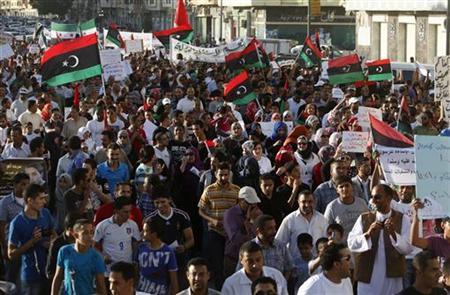
Wounded Libyan militia fighters engaging Islamic State (IS, formerly ISIS/ISIL) in their country are on the verge of receiving medical therapy in British hospitals.
Own Correspondent
The UK is reportedly in intense talks with Tripoli offering those fighting IS emergency beds at a British military hospital in Cyprus in response to calls for assistance by Ahmed Maiteeq, the second-in-command in Tripoli’s newly formed “unity government,” who criticized other European nations for not being proactive to avert the threat widening.
Since all European nations would benefit from removing the IS threat on the continent’s southern flank, they should also shoulder the burden of responsibility, Maiteeq said. To date, only Italy has come to the rescue, airlifting 14 wounded fighters to a military hospital in its capital, Rome, earlier this month.
Said Maiteeq: “We had a very serious attack on our troops, and we did not find any help for our injured. The only country so far is Italy. We make this request to all our allies, and sometimes with requests like this you cannot wait.”
Libya’s war-ravaged hospitals are already overstretched, short of highly qualified surgeons and are running low on basic medicines including anesthetic. However, priority is being given to fighters whose injuries are deemed too serious to be treated in Libyan hospitals.
But fears are abounding that British and Italian military hospitals could easily be overwhelmed unless other European nations offer help.
Maiteeq, a businessman from the city of Misrat, took up his position last month when the unity government was appointed after nearly two years of factional feuding.
- Chamisa under fire over US$120K donation
- Mavhunga puts DeMbare into Chibuku quarterfinals
- Pension funds bet on Cabora Bassa oilfields
- Councils defy govt fire tender directive
Keep Reading
Its main task is to marshal Libya’s different militias into ending IS control of the former Gaddafi stronghold of Sirte, which fell under the terror group’s control last year.
In recent weeks, troops allied to the new government have begun besieging the city, backed with discreet help from Britain, France and the US.
Fighting around the city has seen more than 30 killed and hundreds more wounded. There may be months of heavy casualties ahead as the militia attempt to dislodge 6,000 IS fighters.
Diplomatic sources told the Telegraph the Libyan government was in talks last week to arrange for Britain to provide emergency care at its military base in Cyprus, which stands on British sovereign territory.
It is understood the base was chosen because it is a much shorter airlift than taking wounded to the UK.
A Ministry of Defence spokesperson said no decision had been made and it is too early to say what kind of support the UK will offer.
Meanwhile, Britain and Germany reportedly split over NATO’s military training role in Libya
The NATO powers are at loggerheads over how to help Libya’s new so-called “unity government” push back against the growing threat of IS.
After world powers met in Vienna to offer aid to the UN-brokered “unity government” in Tripoli, NATO foreign ministers are considering their role in stabilizing the country. “NATO has a clear mandate that we should stand ready to support the new government in Libya if so requested,” NATO Secretary-General Jens Stoltenberg said before the meeting. “We are not addressing any potential combat operation.”
Areas of NATO support are likely to include the setting-up of a Libyan defense ministry in the lawless country, and to work with the European Union to train police and coastguards.
Britain would like to see the training of personnel take place in Libya, whereas Germany is adamant it should be conducted over the border in Tunisia.
Allies are also divided over whether NATO should be training a new Libyan military, targeting arms smugglers or stopping flows of migrants across the Mediterranean as calmer summer weather approaches, something Italy and Spain support.
“We have to define how we coordinate European Union and NATO efforts to reduce migrant flows,” Spanish Foreign Minister Jose Manuel Garcia-Margallo said.
Diplomats say Libya would have to make a formal request for NATO and the EU to go after smugglers in Libyan territorial waters, and NATO would possibly even need a UN Security Council resolution.
The new Libyan government, which has yet to establish itself across the country, is also wary of being seen as a Western puppet and is keen to prove its independence. “We have a NATO offer to the Libyan government to do more training and capacity-building there, which the Libyans have not yet opened formal conversations with NATO about,” a senior US State Department official said.
IS seized control of the former Gaddafi stronghold of Sirte last year and has secured its most important base outside Syria and Iraq in the Libyan coastal city. It has struggled to hold on to territory elsewhere in Libya.











